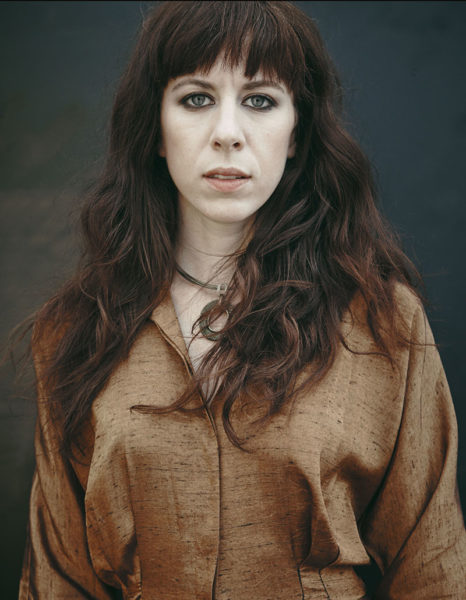By Ricky O’Bannon

Missy Mazzoli first came to Cabrillo Festival in 2007 to participate in the Composer Workshop. On Saturday, Aug. 15, her piece River Rouge Transformation will receive its West Coast debut, which was commissioned and premiered in 2014 by Leonard Slatkin and the Detroit Symphony Orchestra and inspired by photographs by Charles Sheeler of the River Rouge auto plant in 1927 Detroit. Mazzoli has had her work performed by numerous large ensembles including the Minnesota Orchestra, Los Angeles Philharmonic, New York City Opera and Opera Philadelphia as well as smaller contemporary music ensembles like Roomful of Teeth, eighth blackbird and her band, Victoire.
Both your piece at this festival, River Rouge Transformation, and a lot of your previous work seem to find inspiration in poetry, photography or visual art. Is there something about responding to non-musical art forms that you find freeing compared to finding inspiration in other music that already has a certain sound world associated with it?
A lot of my music just comes out of my imagination and is about creating these alternate worlds. Being inspired by a medium that is not my primary medium allows me to sort of dream big and let my mind go to places that I wouldn’t otherwise go. So that’s exciting. But I do take a lot of inspiration from other music. I just wrote a piece for Roomful of Teeth that was inspired by Sardinian folk music. I’ve written pieces inspired by Bach or Balinese music, too. I’m writing a lot of opera right now, so there is something about being able to tell stories through words that is also very exciting for me.
For River Rouge Transformation, you drew from photography by Charles Sheeler of the River Rouge plant in Detroit. How did you translate that musically?
The Charles Sheeler picture was a very specific thing because he made the River Rouge plant look like a giant pipe organ. That’s what struck me about that photo: the idea of imagining Detroit and the River Rouge plant as a pipe organ and wondering what that would sound like? It translated musically very easily because there are a lot of chorales that run through the piece. There is also a mechanized, gritty layer in the piano and percussion and some of the things the strings are doing. There is this factory element.
Do you approach writing for a full orchestra differently than you do writing for a smaller ensemble like your band, Victoire?
Most of the process is the same for me. It’s actually just as complicated for me to write a piece for Victoire or even solo violin as it is for writing for orchestra. But I approach it differently just because of the rehearsal process. Working with an orchestra is sort of a strange beast in that you have to deliver a product that is more or less done. You have maybe three rehearsals where you are maybe allowed to say three things, and then it’s performed. Whereas working with Victoire or working with a soloist, it’s more interactive, and there’s more of an opportunity to change things and try things out. So I think that changes what I write, but the ideas are just as crazy and out there when I’m writing for orchestra as when I’m writing for someone else.
In terms of the contemporary music scene, I’ve heard from several composers who talk about going through conservatory 25 years ago and there being a “correct” composition approach that was taught. Since then, the opinion is that the contemporary music scene has really opened up to a variety of sounds and styles. What are your thoughts on that? And where is the contemporary music scene now?
There is a narrative that back in the dark ages of the ’70s and ’80s everyone was writing this super academic music [that you needed learn] if you were going to be taken seriously and get a teaching job. [Otherwise] you were an outcast or an outsider. Or you were a minimalist or you were experimental. But I do think that even today there is still a sort of pressure. There’s not a pressure to write a certain way, but there are consequences for whatever you do. I think there’s still a certain part of the audience or new music community that will look down on new music if it is too simple, or if you’re using minimalist techniques or if you’re borrowing from pop music. And then on the other side of the coin, people will look down on you if you’re too academic or inscrutable.
So I think the idea that we are doing whatever we want and finding a huge audience and massive acceptance is not true, but it does seem to be easier to develop one’s own voice now. I’m excited that people like Meredith Monk became the [Richard and Barbara Debs Composer’s Chair] at Carnegie Hall last year. People like David Lang or Julia Wolfe are winning the Pulitzer Prize. At the same time you have [Director Heiner Goebbels] staging Harry Partch at Lincoln Center Festival. This is the world I want to live in, where all of this can find a home at prominent outlets, which is exciting.
